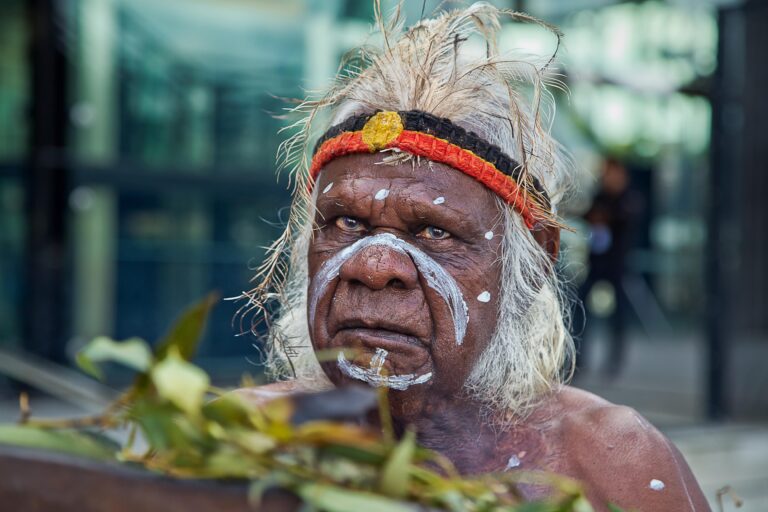Prince William, the Duke of Cambridge, has underscored the vital role Indigenous communities play in safeguarding the environment, urging global support for their efforts to protect natural habitats. Speaking at a prominent conservation event, the UK royal emphasized that empowering Indigenous peoples is crucial to combating climate change and preserving biodiversity. His remarks come amid growing international recognition of Indigenous knowledge and stewardship as key components in the fight to conserve the planet’s ecosystems.
Support for Indigenous Communities Key to Global Environmental Efforts, Prince William Emphasizes
Prince William underscored the vital role Indigenous communities play in safeguarding the planet’s most biodiverse and vulnerable ecosystems. He highlighted how their traditional knowledge and stewardship practices have long been critical in maintaining forest cover, protecting waterways, and sustaining wildlife populations. Advocating for stronger partnerships, the royal called for increased financial support, legal rights recognition, and respect for Indigenous sovereignty as essential steps to amplify their impact on global conservation efforts.
Key areas identified by Prince William for supporting Indigenous communities include:
- Ensuring land tenure security to prevent encroachment and deforestation
- Investing in education and sustainable development initiatives
- Promoting Indigenous voices in international environmental policy forums
| Support Area | Impact on Environment |
|---|---|
| Land Rights | Reduced illegal logging and land exploitation |
| Funding | Enhanced community-led conservation projects |
| Policy Inclusion | Stronger environmental governance worldwide |
Integrating Traditional Knowledge with Modern Conservation Strategies Urged by UK Royal
Prince William has emphasized the crucial role that Indigenous communities play in environmental preservation, highlighting their deep-rooted understanding of ecosystems and sustainable practices passed down through generations. He stressed that empowering these communities is not only a matter of cultural respect but a strategic necessity for achieving global conservation goals. The Prince suggested that collaboration between traditional knowledge keepers and scientific experts can lead to more effective and adaptive strategies to protect biodiversity amid accelerating climate change.
Key elements of this integrated approach include:
- Community-led conservation projects that recognize Indigenous land rights and governance.
- Incorporation of ancestral ecological knowledge in policy frameworks and conservation planning.
- Capacity building and resource sharing to support sustainable livelihoods aligned with environmental goals.
- Respect for cultural heritage as an essential component of ecosystem stewardship.
| Conservation Aspect | Traditional Knowledge Contribution | Modern Strategy Integration |
|---|---|---|
| Forest Management | Controlled burns & seasonal harvesting | Satellite monitoring & fire risk prediction |
| Wildlife Protection | Species tracking & habitat stewardship | GPS tagging & biodiversity databases |
| Water Conservation | Traditional irrigation and sacred water zones | Hydrological modeling & quality monitoring |
Calls for Increased Funding and Legal Rights to Empower Indigenous Land Stewardship
Leaders and environmental advocates are rallying for enhanced financial support and legally binding protections to reinforce the role of Indigenous communities in safeguarding natural landscapes. Emphasizing the deep-rooted connection between Indigenous peoples and their ancestral lands, experts argue that empowering these communities not only preserves unique ecosystems but also advances global climate objectives. Recent discussions have highlighted the necessity of direct funding channels, equitable resource distribution, and policy reforms that recognize Indigenous sovereignty.
Recent proposals coalesce around several pivotal measures:
- Guaranteed legal recognition of Indigenous land tenure to prevent encroachment and exploitation.
- Targeted financial investments that support sustainable land management and conservation initiatives led by Indigenous groups.
- Inclusive decision-making platforms to ensure Indigenous voices guide environmental governance.
| Key Priority | Expected Impact |
|---|---|
| Legal Land Rights | Protects territories from illegal development |
| Funding for Stewardship | Supports conservation projects & livelihoods |
| Policy Inclusion | Amplifies Indigenous governance influence |
In Retrospect
Prince William’s call to support Indigenous communities underscores a growing recognition of their vital role in safeguarding the environment. As the UK and global leaders grapple with climate change and biodiversity loss, integrating Indigenous knowledge and rights into conservation efforts emerges as a crucial strategy. The coming years will test whether these commitments translate into meaningful action on the ground, shaping the future of both Indigenous peoples and the planet.




